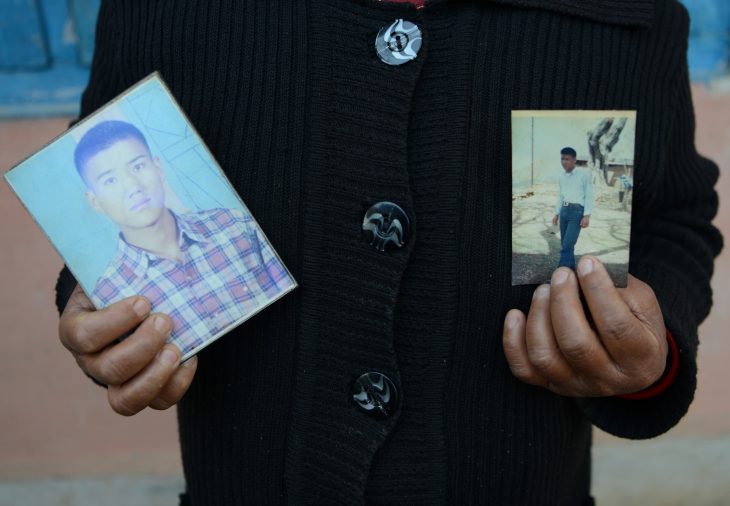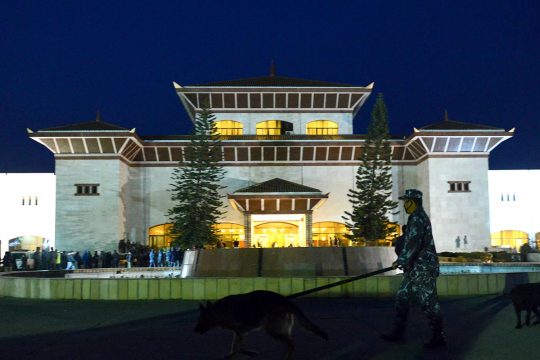On the Republican day on 29 May 2018, government released a criminally convicted former parliamentarian and ex-Maoist leader Balkrishna Dhungel from jail, who was arrested by Supreme Court order in October 2017 and other 815 convicted persons across the country.
Former lawmaker Dhungel was recommended for pardon by the cabinet, which said that he had served 40 percent of his sentence, and fulfilled the criteria for presidential pardon as per the article (276) of the constitution. Upon release on the Republican day in the capital, Dhungel slammed rights activists and lawyers who petitioned against him and charged them making huge profits in the name of human rights. A petition was filed against his pardon at the Supreme Court recently. The Court has sought original file of the government’s decision to pardon Dhungel. But, he was released before the court verdict.
After his release, Supreme Court didn’t issue the stay order, as the Nepal judiciary has been politically instrumentalised and politicized. Regarding transitional justice concerns, government has never implemented court decisions to criminalize disappearance, investigating war crimes and other serious conflict related cases to provide justice to the victims. The country marked the tenth “Republic” day after the first elected constitutional assembly declared Republic” in 2008; but it failed to change the old state institutions and political attitude towards social transformation and structural reforms. General public and particularly the victims of conflict have been continuously felt injustices and threats by the power elites as experienced on this day which has been a big insult to those waiting for justice.
Threats
Nepal transitional justice often faces threats and deviates from its principle of fair justice. As the conflict ended with political compromises, the justice mechanisms have been sacrificed to political reconciliation, resulting in amnesty to move towards ‘peace, stability and prosperity’. Despite the continuous protests by victim groups and human rights community, government doesn’t listen the voices of marginalized population. Front line family activist Sushila Chaudhary says: “it’s a betrayal by the political leadership, my brother and sister (one disappeared and one killed by then State) fought against injustices, inequality and structural violence, that still exists and we have no feeling of changes and living in ambiguity without truth, facing threats in our activism; I see more challenges now to fight against impunity where State protects perpetrators that is a big insult to those disappeared and martyrs, specially on this republic day.”
The ongoing transitional justice bodies have spent 3 years, and failed to investigate alleged perpetrators due to political pressure and threats by the security forces that have heavily affected the commissions’ daily work, as a major cause of failing victims expectation. This case event of pardoning convicted persons may affect the whole transitional justice process negatively.
Home minister rewarded selected alleged perpetrators who were directly engaged in disappearances, extrajudicial killings, sexual abuses and acts of violence during the conflict, Pitabmer Adhikari, involved in the disappearance of Tej Bahadur Bhandari (editor's note : father of the author) in 2001, is one of the examples. National Human Rights Commission on its 18th anniversary on 27th May has repeated to implement its recommendations, and demanded to investigate alleged perpetrators including former chief of Nepal Army and Nepal Police: Pyarjung Thapa and Kubersing Rana for their direct involvement on war crimes (notably Doramba mass killing, Bhairabnath mass disappearance and Dhanusa 5 cases) during the conflict.
However, government doesn’t listen to the victims and human rights bodies. The political message is that there will be no fair and full investigation as the country is moving forward towards a ‘political reconciliation’, where politicians and the security forces secretly agreed to not blaming each other to protect their mutual benefits. It’s very challenging to fight against deep-rooted impunity and state denial.






